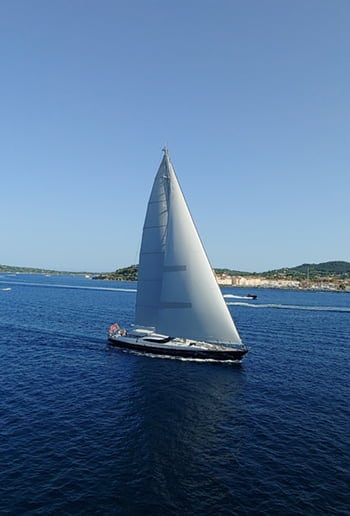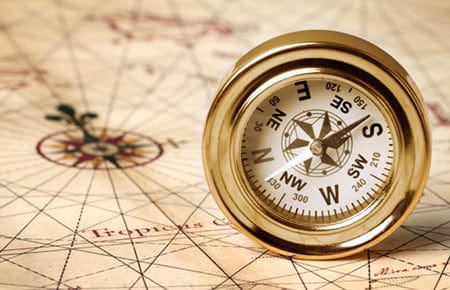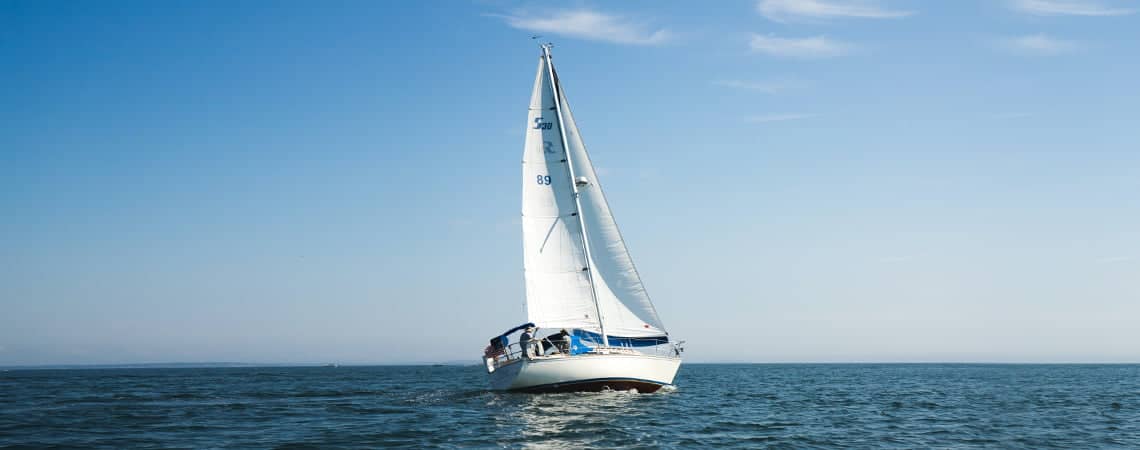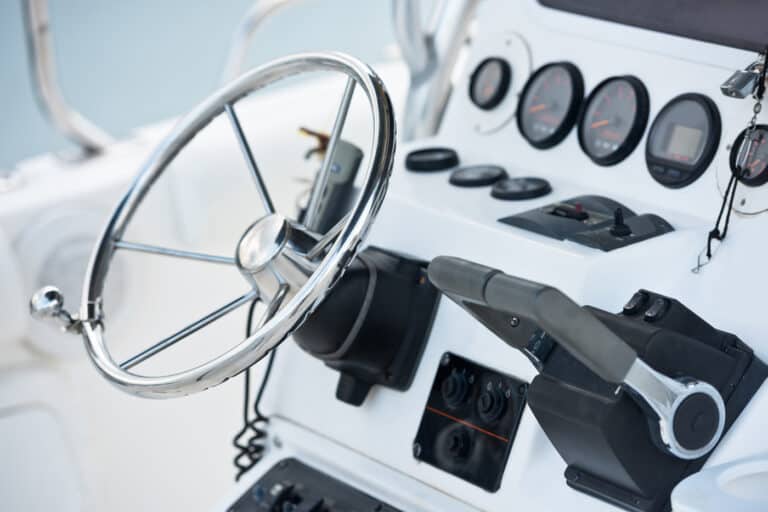Do you ever allow yourself to drift into a dream of flowing along on a boat, with water tinkling along the hull, as you sit at your desk with your eyes blurring over the work you have to do? When the kids start howling, do you sometimes hear the roar of the wind instead?
If you have sailing experience but are boat-less, and a non-millionaire, of course, you don’t get many chances to cruise, no matter how much you dream of it. If you own your own boat, do you feel almost ready to charter a boat and be your own extended cruising skipper? Do you hesitate to venture out on more than a day cruise? Have you obtained your certification and have the on-the-water experience to charter or borrow a boat?
Cruising can quickly turn from pleasure to peril. Illness on board, a rush of bad weather, equipment failure, short-tempered shipmates, unhappy spouses, or bored kids can quickly shatter the dream that floated you away so many times during those tough days.
You can minimize the impact of such events during a cruise by following some of the tips below. This is not an exhaustive list, just some food for thought.
- The Boat & Crew
- A Sail Plan
- Proper Provisioning
- Cash and credit
- Flotilla style trips
- Plan B
The Boat
Choose a suitable boat that you and your crew can handle, but will also provide safety and comfort to everyone on board. For example, it is unlikely that most of your guests be happy to pee in a plastic pot or over the side which is common for racers!

A proper head (toilet) is usually a must, depending on your needs and if in doubt go for more versus less (think, teenage daughters). Special tactics are required for pets, and it is usually best to talk to other pet-owning boaters.
If you are chartering a boat, the company should take you out on a trial sail, if they are worth their mettle. Even if they approve you for that boat, you decide. Is this boat really “it” for your hard-earned dollars?
Alternatively, perhaps some good people offered to lend you their boat. Find out if it is insured, and also ask them to take you on an overnight cruise to see how it feels.
As for crew, be sure to take at least one other competent crew person, preferably two. If something happens to you, the boat and the rest of the guests could become crab fodder. Even if you are fine, heavy weather could tire you out quickly and you will need relief.
Even if you have to take someone you don’t know intimately along, as long as they are respectful, mild-tempered and have a good sense of humor, you can rest easy and keep safe.
Oh, and be sure to find out if there will be smokers mixing with non-smokers and set the ground rules. Best friends can become enemies if they are trapped in the cabin in rough weather and the smoker can’t get outside to light up.
One last tip about the boat. Never, ever, take a boat out cruising with the dinghy blocking any hatches or exits. In the event of a fire, someone may not be able to get to the companionway to escape and will need to get out the front.
A Sail Plan
- Do you have all the right charts (up-to-date), cruising guides, and books for the area?
- Have you written out an approximate sail plan which includes the approximate times that you intend to arrive at different destinations?
- Have you looked at the local tides and currents to help you figure this out?
This sail plan will be logged with someone when you leave, and if you go incommunicado and don’t show up where you told them you will be, you could end up being the object of a Coast Guard search. That’s a good thing if you have are in trouble, but not such a good thing if you just didn’t bother to make contact and update your plan.

Be sure to plan for power recharges at a marina, through secondary power sources, or with your engine running.
For example, people with sleep apnea need a CPAP machine and a mask at night. They will need to plug it into a charger with the same draw as a cell phone. Check the draw of different devices against the ship’s power supply weeks before leaving and plan your battery charging accordingly.
You don’t want to be surprised part-way through a cruise when someone suddenly asks for “Something” that is not on board. Ask the right questions well in advance and set expectations early.
This includes questions about their documentation – if you have to land in another country, are they allowed into the country? Do they have a passport or any other such documents that may be specific to marine travel? Who is their emergency contact? Do they have a criminal record? (not kidding here).
Last but not least, try to go for the easier schedule that leaves lots of time to rest, fish, go ashore, shop, clean, cook and hang out. A 20 mile voyage may not be realistic in 5 hours if you have a sailboat and end up motoring when the wind disappears.
Proper Provisioning
Some guests may have specific dietary needs, medications, and baggage requirements. Provisioning is an art unto itself, and you are best advised to read up, practice up, and double-check!
At the very least, bring loads of drinking water and a first aid kit.
Cash and Credit
Some places only take cash, even ones that normally have electronic payment options. Power outages, system glitches, and surly clerks maybe just a few reasons why. So, pack a little extra cash than you usually would.
Also, let your guests and crew know well in advance how much they will have to spend and on what. Some cruisers like to dine in a restaurant every night, while others can barely afford to scrape together their share of the docking and fuel costs. Disagreements about dining are not conducive to fun.
Flotilla Style Trips
Are you still nervous about going it alone? Several local charter companies also offer flotilla services (commercial), and you can also organize a flotilla with other casual sailors or a local cruising club.
This gives you a chance to travel with other boats nearby you, and in some cases, there may be a flotilla leader who will be there to help you through the trip.
You can ever hire a charter skipper. In all cases, check in advance to ensure that any requirements by the MTO can be met (e.g. boats over a certain size will need to meet safety and other requirements).
Plan B
Sometimes, it just isn’t going to work. This happens to everyone at least once, and instead of getting upset, just go to Plan B.
Having a Plan B is a must.
If you are crew, there are lots of ferries and float planes to get you home or away, but you’ll need to take their schedules and routes with you. If a spouse or friend is going to be in a nearby area, have them at the ready to receive you if you decide to leave the boat or are asked to leave.
You can even carry a list of cool places to go hiking and visiting, so you can keep your holiday going somewhere else or right where you are at the time. If you are skipper, know when it is best to vote someone off the boat that is causing discontent.
Plan C
Plan C may mean having a Blackberry or other handheld device. There may be times on a cruise that you can not raise the marina in a remote area by radio.
The phone signal may be too weak to make a cell phone call but may be strong enough to send an e-mail. You can e-mail ahead to ask if they have room and be surprised to find that they e-mail back right away.
If you are in a situation where you need to get to a marina with power due to your batteries being low, but you are traveling where marinas are few and far between, communication will be important.
Whether it is a cell phone, walkie-talkie, drum, or anything that works for you, have at least two methods of communication on board. Wild areas may be magnificent adventures, but they are still wildernesses without the normal convenient communications.
Planning for pleasure reduces your risk of peril. Along with reading and taking courses, attend guest speakers such as those at sailing club meetings. You will hear the advice from others who’ve been to destinations you are interested in, or who have the skills you want to develop.
It doesn’t hurt one bit to read, listen to speakers, go to events, pick the brains of local skippers. A few recommended reads include: Maiden Voyage, The Voyage of the Northern Magic, The Life of Pi, National and International Sailing/Cruising course books, and Cruising For Cowards.




